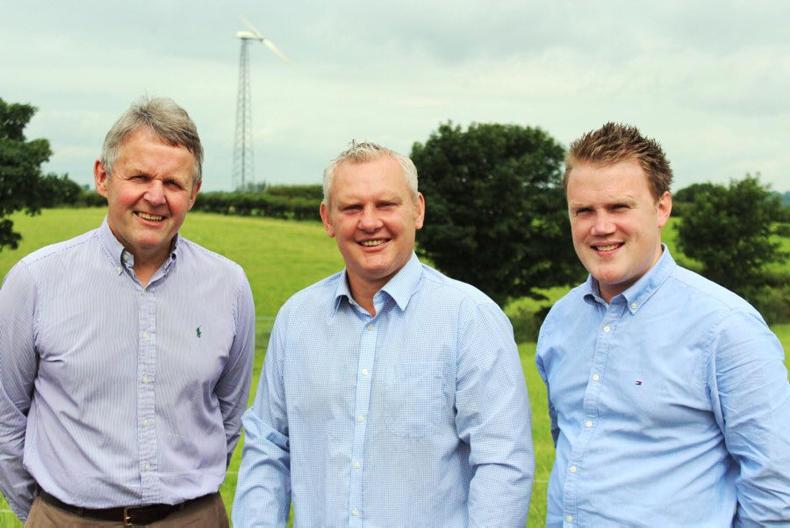In separate meetings in recent weeks with Defra secretary of state, Michael Gove, and Defra head of future farming policy Guy Horsington, the Ulster Farmers’ Union has put the case for tax breaks for those entering into a long-term lease of land.
“They have taken the point on board – now is the time to try to give that older farmer a tax break to ease out of farming. It will also help see generational change in the industry,” said UFU president Barclay Bell.

Bell was speaking at the farm succession event organised by Rural Support at Loughry Campus in Cookstown. The event was also addressed by the manager of the new land mobility programme in NI, John McCallister.
He highlighted the potential damage done to a farm business when conacre land is lost at short notice, describing conacre as a 19th century system.
“I would dearly love to see us moving to more long-term leasing, and look jealously at the Republic of Ireland tax incentive,” he said.
As part of that incentive introduced from 1 January 2015, rental income to the landowner is potentially exempt from tax. For a lease of five or six years, the annual exemption is up to €18,000, rising to €40,000 annually if the lease is for at least 15 years.
Listen to "John McCallister, land mobility manager for NI on farm transfers" on Spreaker.
The tax incentive has been one of the main drivers in a successful land mobility pilot programme run in the Republic of Ireland from 2014 to 2016. In that period, 282 arrangements have been facilitated, covering farming partnerships, share-farming arrangements, contract-rearing and long-term leases. In total, long-term leases covered nearly half of all arrangements.
A similar land mobility programme is now in place in NI, headed up by John McCallister, and taken forward by the Young Farmers’ Clubs of Ulster and the UFU, with financial support from DAERA.
Anyone can put their name forward, whether it is a young farmer keen to farm, but with no land, or a limited land block, or an older person who wants to take a step back.
“Perhaps they might have years of breeding in a herd of cows, and don’t want to see the farm stopping.
‘‘Different people might want different things. All of that can be facilitated. It is about sharing the risk and reward,” said McCallister.
He believes there is a structural problem to be addressed in the industry given that the average age of farmers is 58 and nearly half of farmers over 50 don’t have a successor identified.
The main aim in the first year of the programme is to raise awareness among farmers on what is on offer.
Farm resilience programme
As well as a helpline and on-farm business support, local charity Rural Support is now involved in a number of other projects. They include Social Farming, where people mainly with learning disabilities or mental health issues come to work on a farm as part of a process of therapy, rehabilitation and education.
This autumn, Rural Support will also be involved in the roll-out of the Farm Resilience Programme, a UK-wide initiative which was launched in 2016 by Prince Charles.
It aims to bring together farmers in an area, to review their business and identify opportunities and improvements that will make the business more resilient. The programme is tailored towards livestock farmers. The aim is to establish two groups in NI later this year, one in Antrim and the other in Enniskillen. There will be five group sessions and two one-to-one mentoring sessions on offer.






 This is a subscriber-only article
This is a subscriber-only article










SHARING OPTIONS: